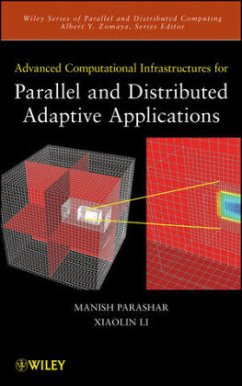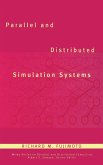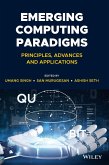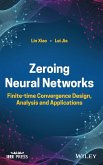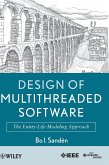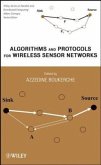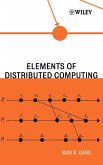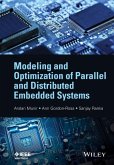This unique, cross-disciplinary reference investigates the state of the art in advanced computational infrastructures and the applications they support. It provides a comprehensive discussion of the requirements, challenges, underlying philosophies, and deployment of infrastructures that provide programming, execution, and runtime management for large-scale adaptive implementations. The information is presented from the perspective of system architects, software engineers, computational scientists, and applications scientists, making the book useful for practitioners and students in these fields.
A unique investigation of the state of the art in design, architectures, and implementations of advanced computational infrastructures and the applications they support
Emerging large-scale adaptive scientific and engineering applications are requiring an increasing amount of computing and storage resources to provide new insights into complex systems. Due to their runtime adaptivity, these applications exhibit complicated behaviors that are highly dynamic, heterogeneous, and unpredictable--and therefore require full-fledged computational infrastructure support for problem solving, runtime management, and dynamic partitioning/balancing. This book presents a comprehensive study of the design, architecture, and implementation of advanced computational infrastructures as well as the adaptive applications developed and deployed using these infrastructures from different perspectives, including system architects, software engineers, computational scientists, and application scientists. Providing insights into recent research efforts and projects, the authors include descriptions and experiences pertaining to the realistic modeling of adaptive applications on parallel and distributed systems.
The first part of the book focuses on high-performance adaptive scientific applications and includes chapters that describe high-impact, real-world application scenarios in order to motivate the need for advanced computational engines as well as to outline their requirements. The second part identifies popular and widely used adaptive computational infrastructures. The third part focuses on the more specific partitioning and runtime management schemes underlying these computational toolkits.
Presents representative problem-solving environments and infrastructures, runtime management strategies, partitioning and decomposition methods, and adaptive and dynamic applications
Provides a unique collection of selected solutions and infrastructures that have significant impact with sufficient introductory materials
Includes descriptions and experiences pertaining to the realistic modeling of adaptive applications on parallel and distributed systems
The cross-disciplinary approach of this reference delivers a comprehensive discussion of the requirements, design challenges, underlying design philosophies, architectures, and implementation/deployment details of advanced computational infrastructures. It makes it a valuable resource for advanced courses in computational science and software/systems engineering for senior undergraduate and graduate students, as well as for computational and computer scientists, software developers, and other industry professionals.
Hinweis: Dieser Artikel kann nur an eine deutsche Lieferadresse ausgeliefert werden.
A unique investigation of the state of the art in design, architectures, and implementations of advanced computational infrastructures and the applications they support
Emerging large-scale adaptive scientific and engineering applications are requiring an increasing amount of computing and storage resources to provide new insights into complex systems. Due to their runtime adaptivity, these applications exhibit complicated behaviors that are highly dynamic, heterogeneous, and unpredictable--and therefore require full-fledged computational infrastructure support for problem solving, runtime management, and dynamic partitioning/balancing. This book presents a comprehensive study of the design, architecture, and implementation of advanced computational infrastructures as well as the adaptive applications developed and deployed using these infrastructures from different perspectives, including system architects, software engineers, computational scientists, and application scientists. Providing insights into recent research efforts and projects, the authors include descriptions and experiences pertaining to the realistic modeling of adaptive applications on parallel and distributed systems.
The first part of the book focuses on high-performance adaptive scientific applications and includes chapters that describe high-impact, real-world application scenarios in order to motivate the need for advanced computational engines as well as to outline their requirements. The second part identifies popular and widely used adaptive computational infrastructures. The third part focuses on the more specific partitioning and runtime management schemes underlying these computational toolkits.
Presents representative problem-solving environments and infrastructures, runtime management strategies, partitioning and decomposition methods, and adaptive and dynamic applications
Provides a unique collection of selected solutions and infrastructures that have significant impact with sufficient introductory materials
Includes descriptions and experiences pertaining to the realistic modeling of adaptive applications on parallel and distributed systems
The cross-disciplinary approach of this reference delivers a comprehensive discussion of the requirements, design challenges, underlying design philosophies, architectures, and implementation/deployment details of advanced computational infrastructures. It makes it a valuable resource for advanced courses in computational science and software/systems engineering for senior undergraduate and graduate students, as well as for computational and computer scientists, software developers, and other industry professionals.
Hinweis: Dieser Artikel kann nur an eine deutsche Lieferadresse ausgeliefert werden.

